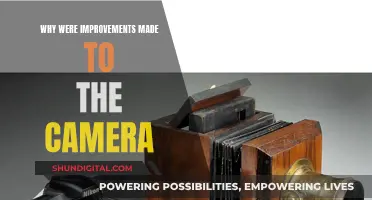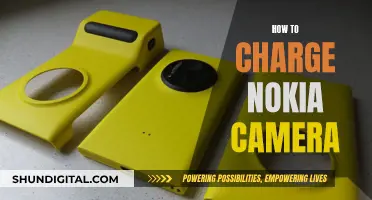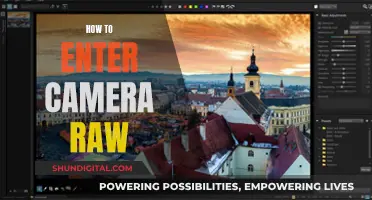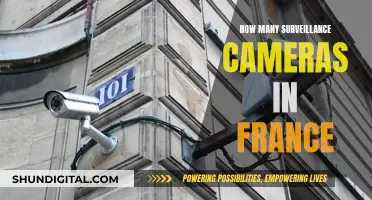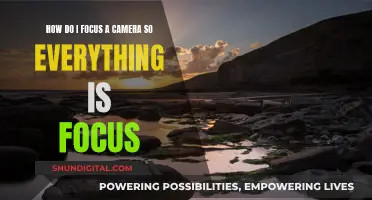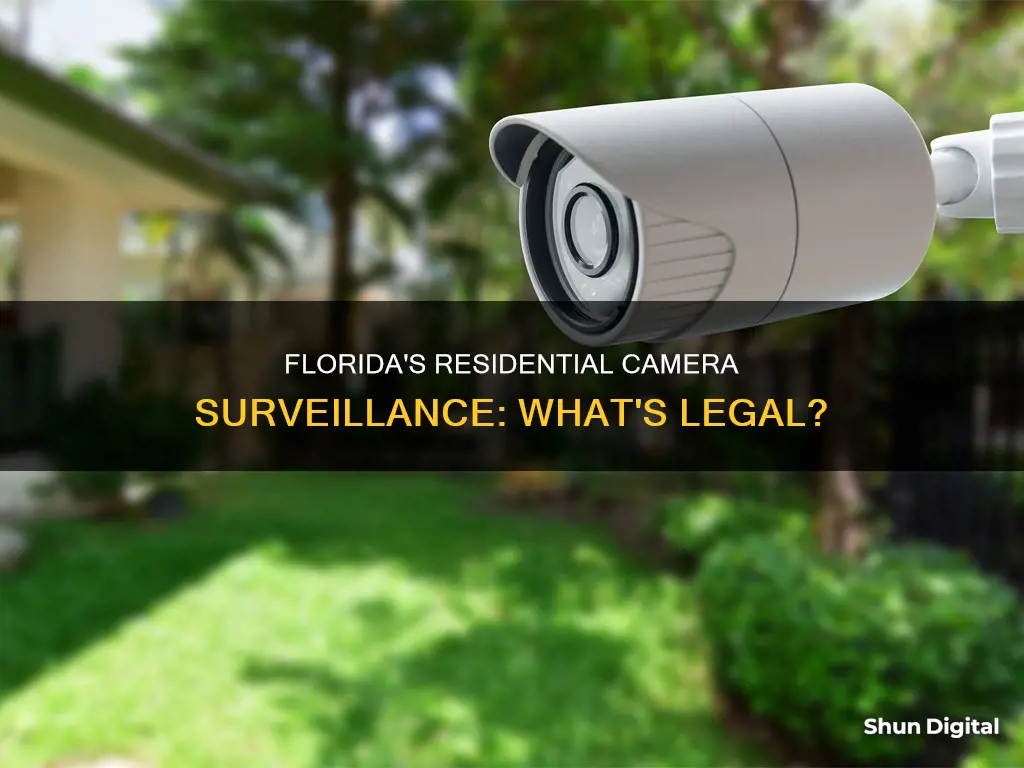
Security cameras are an increasingly popular way to enhance safety and peace of mind for Florida residents, but it's important to understand the legal implications of their use. Florida's surveillance laws distinguish between public and private spaces, with security cameras being generally permissible in public areas such as business premises, as long as the devices are visible and the public is informed. However, in private spaces like homes or offices, the law stresses the importance of respecting an individual's reasonable expectation of privacy. This means that secret observation or recording in areas like bathrooms, bedrooms, or changing rooms is prohibited and can lead to legal issues, including charges of video voyeurism. Florida is also an all-party consent state, meaning that the consent of all parties is required for audio recordings, including those captured by security systems. To ensure legal compliance, it's crucial for residents and business owners to be aware of the laws governing security camera installation and usage, protecting their property while also respecting the rights of others.
| Characteristics | Values |
|---|---|
| Legality of residential camera surveillance in Florida | Legal, if certain conditions are met |
| Conditions for legality | No recording in private spaces, visible cameras, signage indicating surveillance, no audio recording without consent |
| Private spaces | Bathrooms, bedrooms, changing rooms, locker rooms, etc. |
| Signage | Not legally required but recommended |
| Audio recording | Legal with consent from all parties |
| Consent for audio recording | Must be given in writing |
| Exceptions | Law enforcement, security systems with posted written notice, visible cameras, dissemination of images by electronic communication service providers |
| Local laws | Vary by city and county |
What You'll Learn

Visible notice and clearly obvious camera systems
In Florida, the use of security cameras is governed by state laws that distinguish between public and private spaces. In public spaces, security cameras are generally accepted, whereas in private spaces, the laws are more nuanced.
In the case of residential camera surveillance, Florida Statute §810.145, titled "Video Voyeurism", makes it illegal to record video of a person without their knowledge in a setting where they have a reasonable expectation of privacy. However, this law does not apply to certain instances, including when:
- Visible notice is posted where the camera systems are installed: It is important to post clear and obvious signage indicating that the property is under video surveillance. This ensures that anyone entering the property is aware that they may be recorded.
- The camera systems are visible and immediately obvious: The presence of the video cameras should be clearly noticeable to tenants, employees, customers, or visitors. This transparency is crucial, as it allows individuals to be aware that they are being recorded.
- The camera system is observing an area where occupants would not expect to have privacy or engage in private acts: Camera systems should not be placed in areas where privacy is expected, such as bathrooms, bedrooms, or changing rooms. Landlords installing cameras in common areas must also ensure they are not invading tenants' reasonable expectation of privacy.
By following these guidelines, residents can ensure their camera systems are legal and respect the privacy rights of others.
Charging Your Fujifilm Camera Battery: Alternative Methods
You may want to see also

No expectation of privacy
In Florida, the use of security cameras is governed by state laws that distinguish between public and private spaces. In public spaces, security cameras are generally accepted, and there is no reasonable expectation of privacy. However, in private spaces, the laws are more nuanced, and the concept of "no expectation of privacy" becomes crucial.
Florida Statute §810.145, also known as the "Video Voyeurism Law", addresses the issue of no expectation of privacy. This law makes it clear that it is illegal to use any imaging device, such as a security camera, to secretly view, broadcast, or record an individual in a private setting without their knowledge and consent. The law is designed to protect individuals from being recorded in situations where they have a reasonable expectation of privacy.
For security cameras to be legally installed and used in private spaces, certain conditions must be met. Firstly, there should be visible notice posted where the camera systems are installed, and the camera systems themselves should be immediately obvious. This ensures that individuals are aware that they are under surveillance. Secondly, the cameras should be positioned in areas where occupants would not typically expect privacy or engage in private acts. This includes common areas such as lobbies, hallways, and exits, but not private spaces like bathrooms, changing rooms, or bedrooms.
It is worth noting that Florida's video voyeurism laws do not apply to situations where individuals are in public spaces or areas that are plainly visible. In these cases, there is no reasonable expectation of privacy, and security cameras can be used without the same level of restriction as in private spaces.
In conclusion, while Florida's laws on security cameras aim to balance privacy and security, the concept of "no expectation of privacy" is central to understanding and complying with these laws. By following the guidelines for proper installation and usage, residents and business owners can ensure they are respecting the privacy rights of individuals while also protecting their property.
How Cameras Precede Photos: A Historical Perspective
You may want to see also

Consent for audio recording
Florida is a two-party consent state, which means that all parties must consent to the recording of audio for it to be legal. This applies to both public and private spaces.
Florida Statute 934.03 states that it is a criminal offence to record oral or electronic communications without the consent of everyone taking part. This means that you cannot record a conversation you are taking part in unless all other parties are in agreement.
There are a few exceptions to this law. Florida allows recording without the consent of all parties if:
- It is for law enforcement purposes, and consent has been given by someone acting in an investigative capacity.
- It is for the protection of minors. Any communication involving unlawful physical or sexual acts with a minor under 18 can be recorded, as long as the minor is a party to the communication.
- It is a public discourse. Recording someone speaking in a public space is legal as no individual has a reasonable expectation of privacy.
To obtain consent for a recorded conversation, the Federal Communications Commission (FCC) states that you may gain consent by:
- Gaining verbal or written consent prior to the recording.
- Playing a verbal notification before the conversation begins, such as "This phone call is being recorded for quality control purposes".
- Having an audible beep tone repeated at steady intervals during the conversation.
Recording a conversation without consent can result in both criminal and civil penalties. For first-time offences, it is a misdemeanour punishable by up to one year in jail and potential fines of up to $1,000. If the recording is distributed, each instance is considered a separate felony.
Fight Camera Tickets: Know Your Rights, California!
You may want to see also

No video voyeurism
In Florida, video voyeurism is a serious criminal offence. It is committed when a person uses an imaging device to secretly view someone in a private area without permission. This includes secretly recording someone in an intimate state, usually out of sexual interest or for sexual gratification.
Florida Statute 810.145, titled "Video Voyeurism", makes it illegal to record video of a person without their knowledge in a setting where they have a reasonable expectation of privacy. This means that it is illegal to use any imaging device, such as a smartphone or security camera, to secretly view, broadcast, or record video of a person in a private setting without their consent. This is especially true when the person is engaged in private acts such as dressing or undressing.
The law defines "reasonable expectation of privacy" as a place and time when a person can fully disrobe in privacy, without worrying that their undressing is being viewed, recorded, or broadcasted by another person. This includes places such as the interior of a residential dwelling, bathroom, changing room, fitting room, dressing room, or tanning booth.
It is important to note that video voyeurism laws do not apply to home security if certain precautions are taken. For example, if there is a visible notice posted where camera systems are installed, or if the camera systems are immediately obvious. Additionally, if the camera system is observing an area where occupants would not expect to have privacy or engage in private acts, it does not violate the law.
The penalties for video voyeurism vary depending on the age of the offender and the number of prior convictions. For instance, video voyeurism by a person under 19 is a first-degree misdemeanour, while video voyeurism by a person over 19 is a third-degree felony. If the offender has a prior conviction for video voyeurism, the penalty increases to a second-degree felony.
In conclusion, while residential camera surveillance can be legal in Florida, it is important to be aware of and comply with the state's video voyeurism laws to protect the privacy rights of individuals.
Clear Out Camera Raw and Lightroom Cache Clutter
You may want to see also

Installation by a licensed contractor
If you're considering installing a residential camera surveillance system in Florida, it's important to ensure that the installation is done properly and legally. Here are some reasons why hiring a licensed contractor for the installation is beneficial:
Knowledgeable Installation
A licensed contractor will have the knowledge and expertise to properly install your camera system, ensuring that cameras are placed in compliance with state and local laws. They will know the specific legal requirements for camera placement, such as avoiding areas where individuals have a reasonable expectation of privacy, like bathrooms, changing rooms, or bedrooms. This helps to keep your building secure while also remaining compliant with privacy laws.
Safe Installation
Licensed contractors are experienced in handling electrical work and will ensure that your camera system is installed safely. They will have the skills to navigate any electrical wiring changes or complexities that may arise during the installation process, reducing the risk of electrical issues or camera failure.
Warranty and Insurance
When you hire a licensed contractor, they typically provide a warranty on their installations. This means that if any issues arise with your camera system, they will be responsible for fixing them. Additionally, licensed contractors carry liability insurance, which protects you in case of any property damage or injuries that may occur during the installation process.
Protection Against Scams
Unfortunately, there are many scammers and fraudulent individuals who pose as security camera installers. By hiring a licensed contractor, you can verify their credentials and protect yourself from potential scams. A licensed contractor is accountable to the state licensing entity, providing you with recourse if the installer does a poor job or engages in unethical practices.
Compliance with Laws
Florida law requires that certain types of camera systems, especially for businesses or those monitored by security companies, be installed by licensed contractors. This ensures that your camera system complies with legal requirements and helps you avoid any penalties or liabilities associated with improper installation.
Expert Advice
Licensed contractors are knowledgeable about the specific laws and regulations related to camera installation in Florida. They can advise you on the number of cameras needed, their placement, and any signage requirements to ensure compliance with privacy laws. Their expertise will give you peace of mind and help you make informed decisions about your security system.
Charging the HP R847: A Step-by-Step Guide
You may want to see also
Frequently asked questions
Yes, you can install security cameras in your home in Florida. However, you must ensure that you comply with state laws and respect the privacy rights of others.
You must ensure that your security cameras are not recording in areas where individuals have a reasonable expectation of privacy, such as bathrooms, bedrooms, and changing rooms. You should also consider posting clear signage to inform visitors that they are being recorded.
Yes, Florida Statute §810.145, also known as the "Video Voyeurism Law," prohibits the secret recording of individuals in areas where they have a reasonable expectation of privacy. This includes private spaces such as bathrooms, bedrooms, and changing areas.
Violating the privacy rights of individuals through improper use of security cameras can result in legal issues, including charges of video voyeurism, civil penalties, and punitive damages. It is important to understand and comply with the applicable state laws to avoid such consequences.


